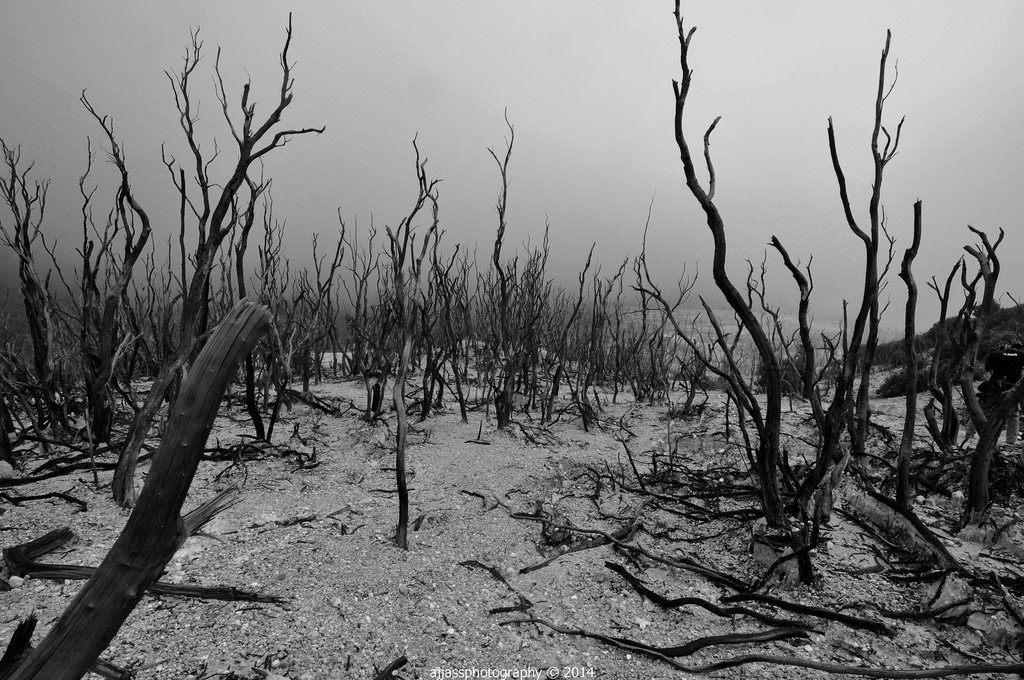
Oh, Plants What Would We Do Without You?
May 12, 2021 - Reading time: ~1 minute
Today I just wanted to share a few tips on plants and their care:
Where would we be without plants? What happens when you fail to take care of your plants?
- Well without the flowers we do not have anything nice to decorate our tables, we also have nothing to give to our moms.
- Nor will we have them when we want to give them to a girlfriend/boyfriend, the bride will also not have her bouquet.
- Shade is a nice perk too.
- Most important, our breathing will suffer if we don't take care of them.
- Let's do something for the plants, our mothers, girlfriend/boyfriend, and planet.


The Future: Gray or Green – You Decide
September 18, 2020 - Reading time: 5 minutes
Plants are essential for life on this planet but is their importance apparent? Sure plants surround us but are we able to see the forest through the trees? Have we lost touch with their role in our lives? There is a lot of "green talk" that some people in our society feel has become tedious, the "noise" gets blocked out and they look for other answers, "alternative answers" that align with their world view. One that might be drastically at odds with the facts. As it stands our future can go one of two ways: Toward a greener brighter future or a gray world where life as we know it will be changed forever.
Change doesn't need to be as dramatic as most are lead to believe. Yet, the COVID-19 lock downs that we have experienced are what many people fear a greener tomorrow will look like, that is not the case. Their is valuable information that can be gleamed from the pandemic that shows change in the way we live can have a dramatic effect on the health of the planet. Plant and wildlife both have been able to rebound in this time. That is, to say that a lot has changed in a short period with drastic changes, the same could be achieved if we implement smaller changes over a longer timespan. With the willingness to make small changes over a longer time we can make real improvements without impacting "life as we know it" in a less than dramatic way.
Covid-19 has upended almost every aspect of societies around the world in just a few weeks. “Climate change is much slower acting, but ultimately could be at least as disruptive,” said Michael Gerrard. ~ "What Can We Learn From COVID-19 to Help With Climate Change?" by Renee Cho on March 26, 2020"
What we are getting a small sample of what a future with climate change will look like. Though the shortages will not be as humorous as lack of toilette paper. We won't be able to expect the supply at out local grocery to normalize after the initial panic is over. Because the shortage will go beyond those in our society determined to stock up at the expense of others. Those short term shortages will be longterm.
It doesn't have to be though. The coronavirus pandemic has shown us that if we work as a whole things can be reversed.
Research by scientists at Columbia’s Lamont-Doherty Earth Observatory has shown that coronavirus-related shut downs are causing air pollution and carbon emissions to plummet in New York. Similar trends are being observed in other cities. It is likely these effects will be short-lived, however. ~ "What Can We Learn From COVID-19 to Help With Climate Change?" by Renee Cho on March 26, 2020
Researchers in New York told the BBC their early results showed carbon monoxide mainly from cars had been reduced by nearly 50% compared with last year. ~ "Coronavirus: Air pollution and CO2 fall rapidly as virus spreads" by Matt McGrath

Here are some of the lessons we can take away:
- Lowering air travel lowers the output of greenhouse gas;
- Digital communication which has been embraced more now than ever before may be a possible solution to reduce certain forms of air travel
- Science has been under attack for some time now and it is through misunderstanding that people use to entrench themselves in their beliefs.
- Learning to understand and heed the warning that we are given is a key to improving our response to the tasks at hand. Many people assume that science is based on hard facts. That it is faulty when new information and techniques allow us to further refine our understanding and partially disprove past beliefs.
- That global cooperation is not only helpful it is required if we want to make any real headway. Pulling on the same rope only works when we all pull in the same direction.
A lot has happened this year. We have been able to gain a lot of new knowledge and see the benefits of both active CO2 reduction and the impact that a worldwide crisis would have on our lives.
We have the tools, are we willing to use them?

